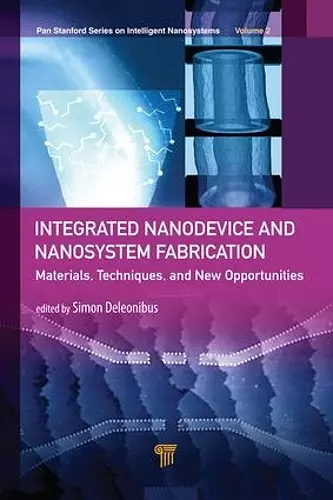Integrated Nanodevice and Nanosystem Fabrication
Breakthroughs and Alternatives
Format:Hardback
Publisher:Pan Stanford Publishing Pte Ltd
Published:14th Nov '17
Currently unavailable, our supplier has not provided us a restock date

Since its invention, the integrated circuit has necessitated new process modules and numerous architectural changes to improve application performances, power consumption, and cost reduction. Silicon CMOS is now well established to offer the integration of several tens of billions of devices on a chip or in a system. At present, there are important challenges in the introduction of heterogeneous co-integration of materials and devices with the silicon CMOS 2D- and 3D-based platforms. New fabrication techniques allowing strong energy and variability efficiency come in as possible players to improve the various figures of merit of fabrication technology.
Integrated Nanodevice and Nanosystem Fabrication: Breakthroughs and Alternatives is the second volume in the Pan Stanford Series on Intelligent Nanosystems. The book contains 8 chapters and is divided into two parts, the first of which reports breakthrough materials and techniques such as single ion implantation in silicon and diamond, graphene and 2D materials, nanofabrication using scanning probe microscopes, while the second tackles the scaling and architectural aspects of silicon devices through HiK scaling for nanoCMOS, nanoscale epitaxial growth of group IV semiconductors, design for variability co-optimization in SOI FinFETs, and nanowires for CMOS and diversifications.
"A timely book that showcases some of the most important advances in nanodevices and nanofabrication, written by world-renowned experts."
Prof. H.-S. Philip Wong, Stanford University, USA
"This seven-chapter book reviews important new trends in nanotechnology and nanodevices, ranging from single-ion implantation and two-dimensional materials, such as graphene, to nanofabrication with a scanning probe microscope. The second part of the book deals with unconventional approaches to scaling nanoscale CMOS devices and to reducing device variability. Taken together, the book provides a wealth of information for graduate students and nanotechnology researchers, as well as a good insight into the future developments for engineers involved with nanosystem design and fabrication."
Prof. George Celler, Rutgers University, USA
"In this book, the authors address various advanced nanofabrication techniques and device issues for nano-CMOS extension. The topics are timely and their description is well balanced between innovation and practicality, as the authors evaluate each technique on the basis of the current CMOS technology. I strongly recommend the book to graduate students, researchers, and engineers in the industry and academia."
Prof. Byung Gook Park, Seoul National University, Korea
ISBN: 9789814774222
Dimensions: unknown
Weight: 660g
326 pages